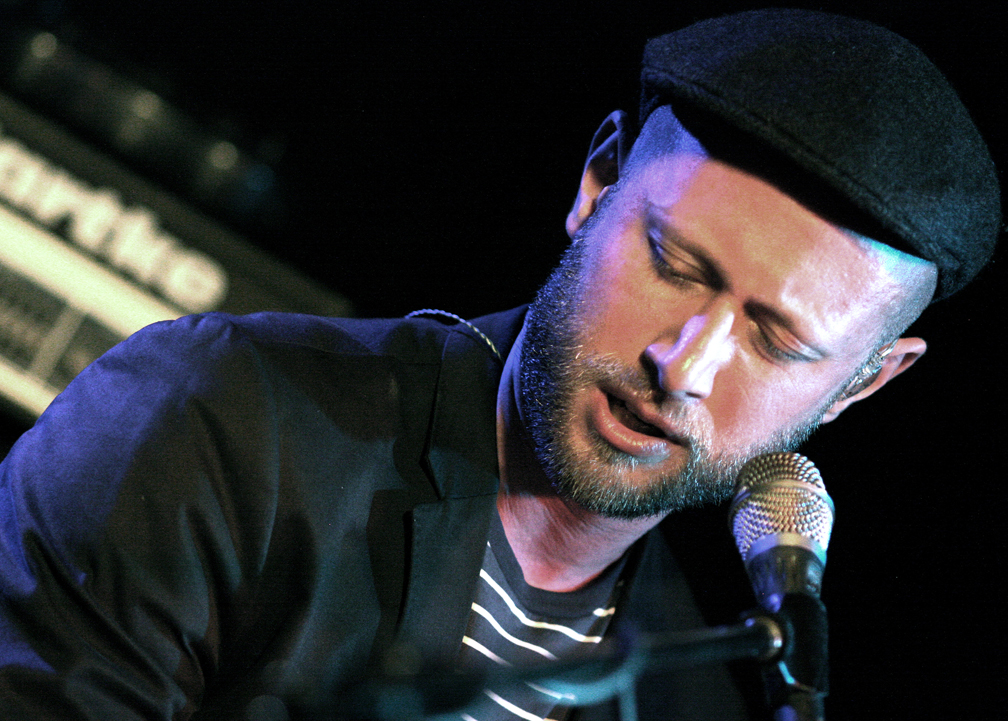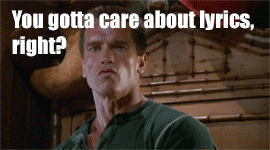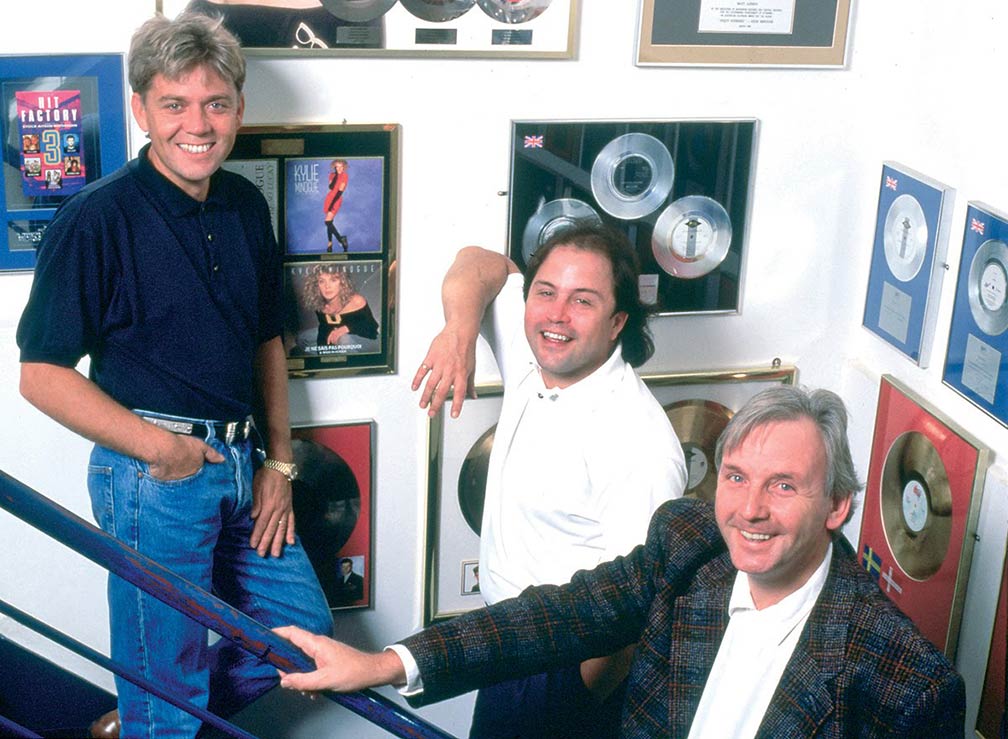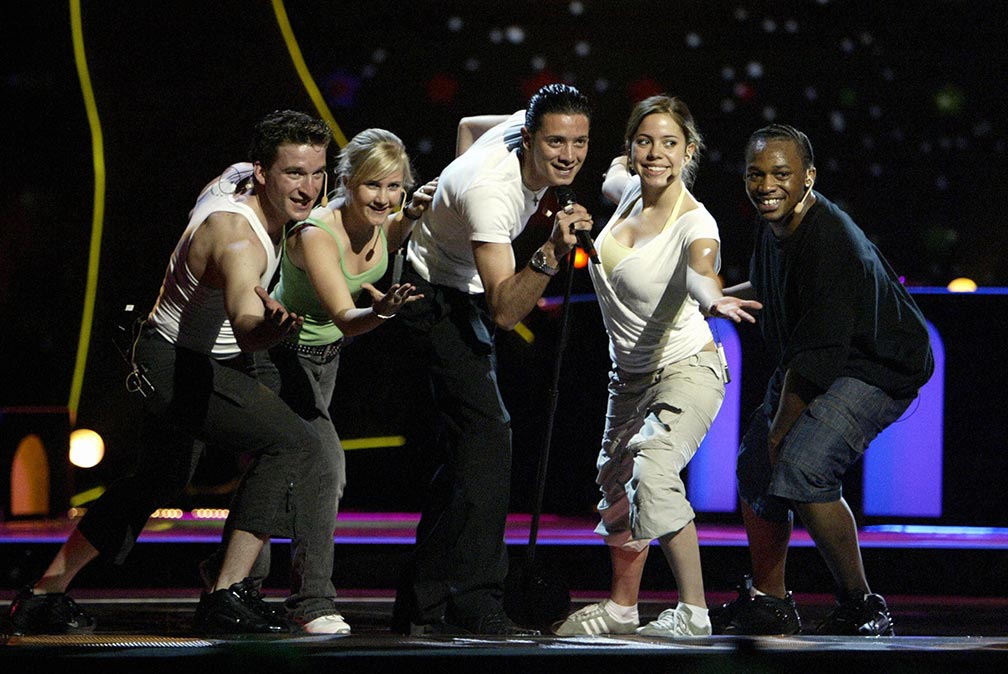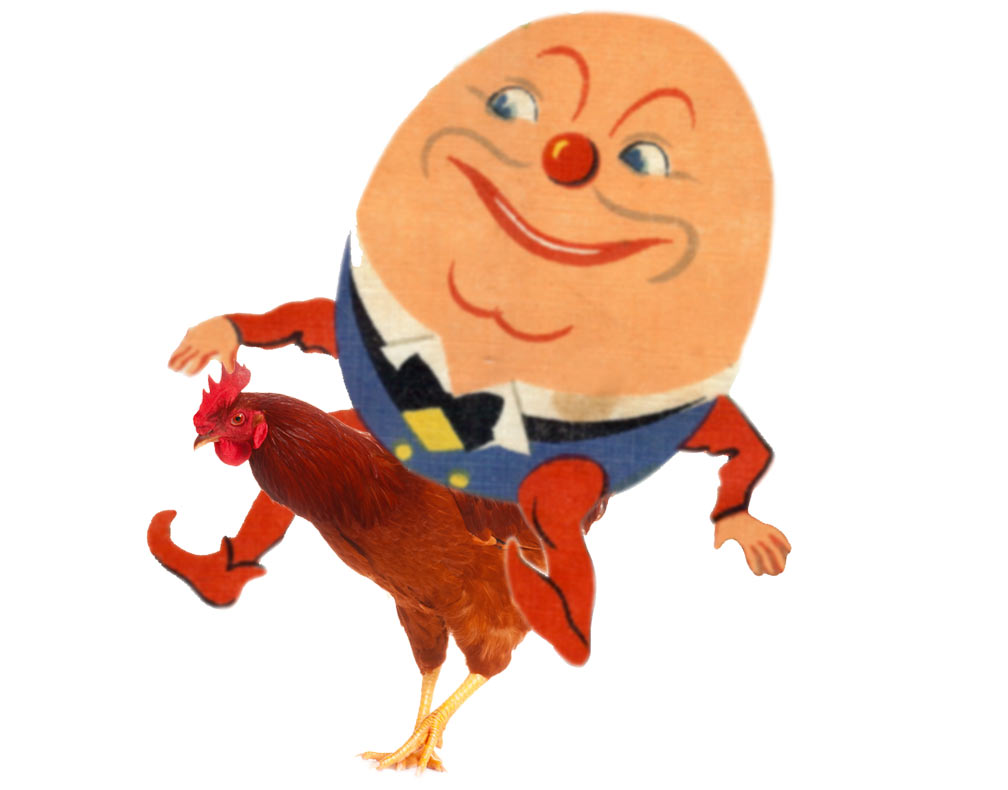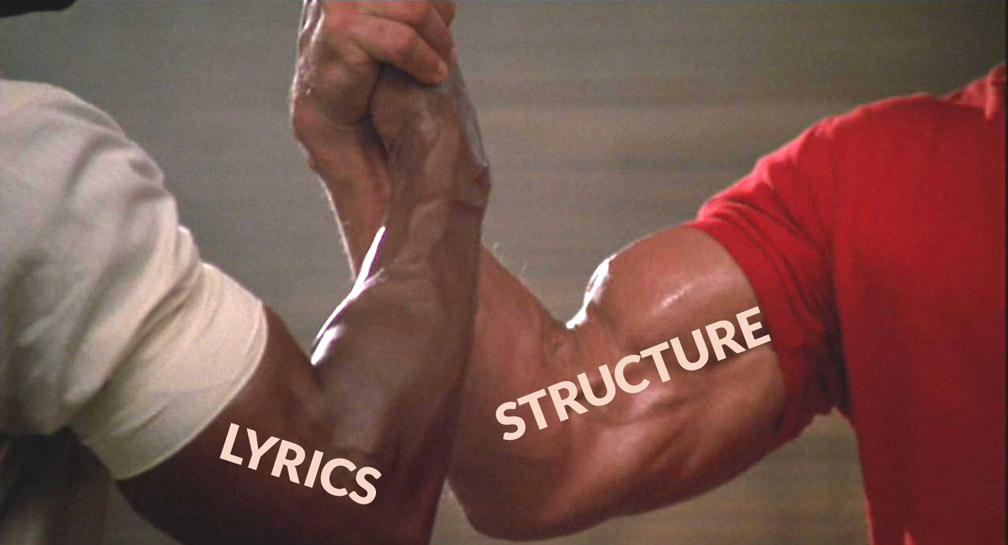Too often lyrics are dismissed as not being important. It’s all about the tune, the riffs, the energy, the performance, the arrangements isn’t it?
I was in the “lyrics, who cares” camp for a while myself – I’d have happily given a monkey a crayon and put the resulting scrawl to music. But over the last few years, I’ve come to realise that lyrics really are important. I no longer consider them the chore I used to, better still I enjoy writing them. If you have bad lyrics, chances are you’re going to have a bad song.
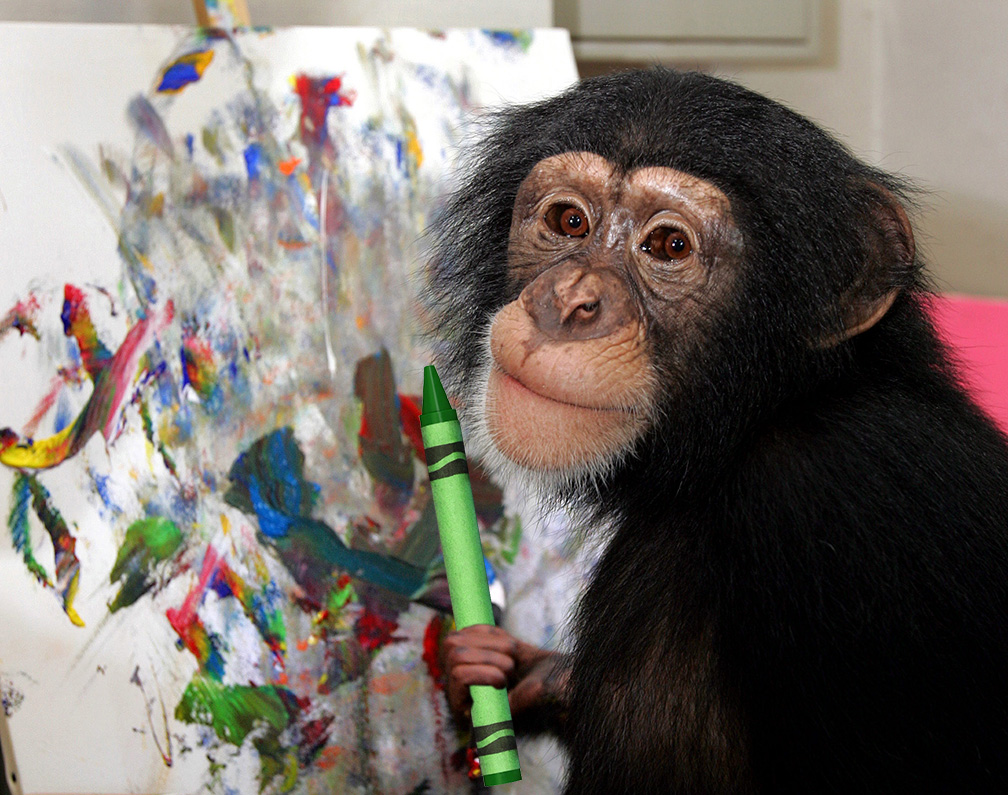
Enough monkeys with enough time will write the complete works of Shakespeare. One chimp with a crayon in an afternoon won’t.
This post isn’t offering much in the way of lyric writing tips or rhyme pattern advice but takes a look at some songs (including my own) and the effect they may be having on mankind as well as some general ramblings. A future post will cover how I tackle my lyric writing specifically, offering tips and advice.
Why are lyrics so important?
You have to make an emotional connection with your listener – they need to relate to your song. Music is extremely powerful when it comes to evoking emotions, put great lyrics to a great tune and you’re on to a winner.
My last blog post “Is there a secret formula to songwriting?” breaks down a song into its component parts. You need to have all of them working in harmony for a great song, that includes the words.
Make people cry
I’ve been told that my song “Hold on to your love” has brought a tear to the eyes of a couple of people I know. I guess the chord progressions and piano part could be considered quite emotive, but let’s face it, if I were singing about different flavours of ice cream, rather than love, I don’t think anyone would really connect too well with the song. As a songwriter, you want to make people invest emotionally, so if you make them cry then you should be happy.
Love makes the world go round
Singing about love doesn’t offer a quick solution however. Love songs have been around for centuries and have to be the most written about subject in songwriting: being in love, falling in love, heartbreak etc. From Johannes Ciconia’s “O Rosa Bella” written in late 14th century Renaissance Italy right through to Sam Smith’s “Stay with me”. Just because most of us can relate to love doesn’t automatically mean you’re going to get it right. In fact because the market for love songs is so saturated, getting a song about love to actually stand out in the crowd is a lot harder than getting people to show an interest in your song about ice cream.
Who says there’s no romance in a song about ice cream. This one get’s me every time.
Clichés ruin lives
It’s also very easy to pollute a love song with clichés – this is taking the easy way out so don’t be lazy and work hard to avoid it. Hearing a cliché in a song to me is like sucking on lemons right after eating a broken glass sandwich. So let’s refrain from doing it and help commit the word “cringe” to the far recesses of the English language.
Have a listen to “Fill You Up” by Nelson from the early 90’s Album “After the Rain”. Listen to the words, it’ll have you wanting to tear your ears off, burn them and bury the ashes at sea in an impregnable lead box. Tears yes, but the tears that come from children’s nightmares.
This album was a huge success, but this song is a multiple offender regarding clichés. I’ve cherry picked some of the humdingers and responded accordingly:
- Empty feeling
(AM: Must have skipped breakfast) - Waitin’ forever
(AM: With a life expectancy of around 80 for your average Californian, this seems rather unlikely) - It’s you against the world
(AM: 1 vs 7 billion, Chuck Norris likes those odds) - I can take you to heaven
(AM: He’s going to kill her?) - Make you come alive
(AM: So, he’s already killed her and has some rudimentary witchcraft training?) - Now is the time to open up your wings and fly
(AM: She’s a mutant, I didn’t see that one coming) - Don’t you give up on dreamin’
(AM: Eat fondue before bed) - Follow your heart
(AM: Or use Google Maps)
A tree, some ghosts and a chainsaw
I’m not sure all my lyrics relate to people all the time. I wrote a song, in the not too distant past called “Catcher in the Rye”, where the title lyric is used as a simile to describe the protection offered by a haunted tree to the ghosts that dwell there. The tree is under threat from a road contractor intent on cutting it down and the song’s middle 8 section (see Songwriting, is there a secret formula? for definition) offers a slight twist in the tale resulting in a happy ending.
Now I know what you’re thinking, unless you’re a haunted tree who’s been there done that, you may struggle to relate. Thinking about it I don’t really know what I was on either, maybe if I wanted to write a children’s book I should have just done so.
I’m not sure if the story can be used as an analogy for something that us humans could relate to or whether there’s some moral to the tale regarding loyalty or friendship, I didn’t really think about it that deeply. I like the song regardless but let’s face it people may struggle to connect with it emotionally, let alone pick up what the hell I’m going on about.
Conclusion
You need to get the right balance – finding a halfway point between the cliché-ridden “Fill You Up” and the I-need-an-explanation “Catcher in the Rye”. Writing genuine and honest lyrics is the way to go. This is my opinion of course, who am I to come between a man and his desire to write a cliché heavy lyric about his love of chocolate ice cream.
As mentioned I will go into detail about how I write my lyrics offering advice and tips in a future post.
If you have any feedback or questions, just let me know, either on here or through Facebook or Twitter.
Don’t miss the next post
Subscribe to the Albert Man mailing list.
Share this post
If you liked this post, say thanks by sharing it:
